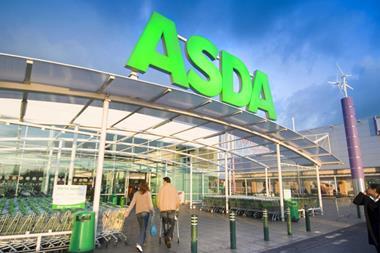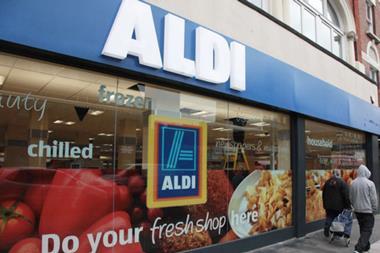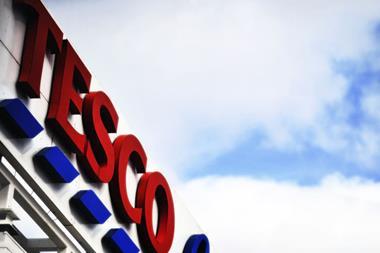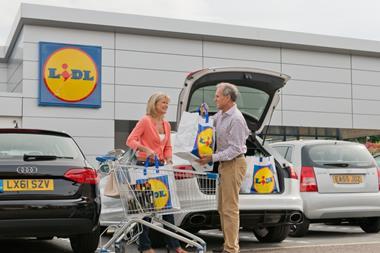Sainsbury’s has outperformed the market for the third consecutive month with sales growth of 1.2%.
The retailer has seen the growth across convenience, supermarket and online, which has increased market share to 16.7%, according to the latest figures from Kantar Worldpanel [12 w/e 6 December].
Tesco and Asda both saw a fall in sales of 3.4% despite increasing their online sales while Morrisons saw a drop of 2%. Morrisons said that between half and three-quarters of this decline was as a result of its exit from the convenience sector and shutting 21 supermarkets, many of which closed last month. It said this accounted for a reduction in sales of between 1% and 1.5% and that it would be facing these tough comparisons for the next year.
Aldi and Lidl remain with a combined 10% share of the market, growing sales by 15.4% and 17.9% respectively year on year. The Co-operative Group’s revival continues with sales growth of 2% and an increased market share to 6.2%. Waitrose grew revenues by 2.7% and holds a 5.1% share of the market.
Overall sales in the total grocery market were up 0.1% on the same period last year, despite the impact of Black Friday, which saw a 4% increase in sales on last year. The latest period sees the lowest growth since June and is the ninth consecutive month where sales have increased by less than 1%.
“Despite the difficult market conditions, Sainsbury’s increased sales by 1.2%, growing across its convenience, supermarket and online businesses and increasing its market share to 16.7%. Consumers continue to be drawn to the retailer’s ‘Taste the Difference’ range, and with sales of Champagne and sparkling wine up by a quarter it seems clear that the grocer is successfully tapping into demand for premium goods,” said Fraser McKevitt, head of retail and consumer insight at Kantar Worldpanel. “Sainsbury’s recent run of success predates its popular ‘Mog’s Christmas Calamity’ advert, with the retailer now having grown ahead of the market for three months in a row.”
Grocery inflation now stands at -1.9% for the 12-week period ending 6 December 2015, meaning shoppers are now paying less for a representative basket of groceries than they did in 2014.



















No comments yet